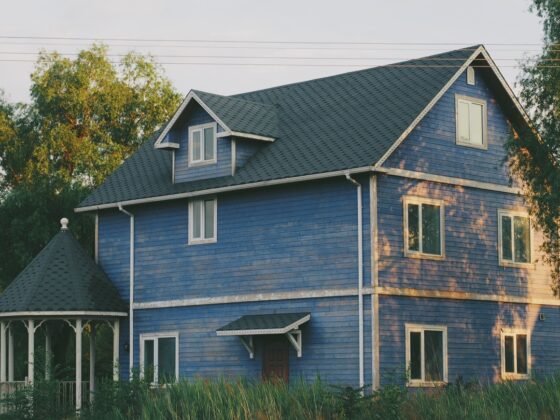When it comes to buying a new home, many people dream of having a custom-built house that perfectly suits their needs and preferences. However, before you jump into the idea of building a custom home, it’s important to consider the potential downsides. In this blog post, we’ll explore why custom homes can be a waste of money and space.

The High Cost of Customization
Building a custom home can be a dream come true for many, offering the chance to tailor every aspect of a house to personal preferences. However, this dream often comes with a hefty price tag and potential waste of space.
- Financial Implications: Custom homes are generally more expensive than pre-built or spec homes. The costs can quickly escalate due to the unique designs, materials, and labour involved. For instance, the average cost of building a custom home can range from $350,000 to over $1.5 million, depending on various factors such as location, materials, and design complexity.
- Space Considerations: Custom homes may also lead to inefficient use of space. Homeowners might overestimate their needs, resulting in unused rooms and areas that require maintenance and heating or cooling, adding to the long-term costs.
- Resale Value: The customization that makes a home perfect for you might not appeal to the broader market. This can make it harder to sell the home and recoup the investment, especially if the custom features are highly personalized.
- Economic and Environmental Impact: The resources and energy required to build a custom home are often greater than those for a standard home. This not only affects the homeowner’s wallet but also has a broader impact on the environment, contributing to a larger carbon footprint.
The Limitations of Space
While custom homes offer the opportunity to design a space that suits your specific needs, they can also lead to wasted space. It’s easy to get caught up in the excitement of customizing every aspect of your home, but this can result in rooms that are too large or awkwardly shaped. These unused or inefficiently used spaces can end up being wasted and contribute to higher maintenance costs.
Additionally, custom homes often require larger lots to accommodate the desired design. This can limit your options when it comes to location and increase the cost of the land. It’s important to consider whether the extra space is truly necessary or if it’s simply a luxury that you can do without.
The Resale Value Challenge
Another aspect to consider is the resale value of custom homes. While you may have designed the perfect home for yourself, it may not appeal to a broader market when it comes time to sell. Potential buyers may not share your specific tastes and preferences, making it harder to find someone willing to pay top dollar for your custom-built home.
Furthermore, design trends and preferences change over time. What may be considered stylish and desirable today may become outdated in a few years. This can negatively impact the resale value of a custom home, as potential buyers may factor in the cost and effort required to update or renovate the property.
Consider Alternatives
Before committing to building a custom home, it’s worth considering alternatives that can offer more flexibility and cost-effectiveness. For example, purchasing a pre-existing home and renovating it to suit your needs can be a more affordable option. Alternatively, working with a reputable builder who offers a range of customizable floor plans can provide a good balance between customization and cost.
Ultimately, the decision to build a custom home should be carefully evaluated based on your specific circumstances and priorities. While it may be tempting to create a home that is uniquely yours, it’s important to weigh the potential downsides, such as the high cost of customization, the limitations of space, and the challenge of resale value.
Conclusion
Custom homes can be a dream come true for those who want complete control over their living space. However, it’s crucial to consider the potential drawbacks, such as the high cost of customization, the limitations of space, and the challenge of resale value. By exploring alternative options and carefully evaluating your priorities, you can make an informed decision that best suits your needs and budget.
Frequently Asked Questions
Custom homes can be seen as a waste of money because they often involve extra expenses for features and space that may not be necessary. Nobel Prize-winning economist Robert Shiller argues that the ubiquity of technology has reduced our need for large, sprawling houses, making big houses a poor investment.
Technology has permeated every aspect of our lives, reducing the need for extra space. For example, electronic books reduce the need for bookshelves, and online services can replace elaborate kitchens and workshops.
Financial experts suggest that buying a big house is not a great investment. Instead of buying the biggest house you can afford, it’s recommended to buy as many houses as you need, focusing on efficiency and utility.
Living in a smaller home can lead to savings on heating, cooling, decorating, and maintenance costs. It also encourages a minimalist lifestyle, potentially leading to less clutter and more financial freedom.
Potential homeowners should consider the long-term value of their investment, the actual space they need versus want, and the implications of custom features on future resale value. Experts advise against personal and custom renovations that may not appeal to future buyers.










